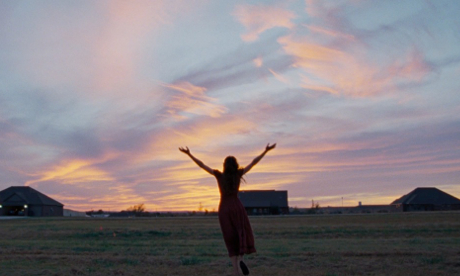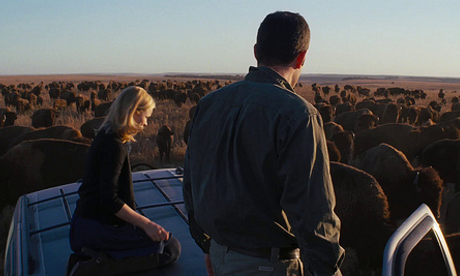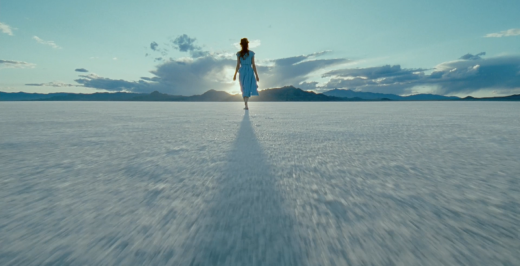Director: Terrence Malick
Writer: Terrence Malick
Year: 2012
Cast: Olga Kurylenko, Ben Affleck, Javier Bardem
★★★★★
Released less than two years after The Tree of Life, Terrence Malick’s To the Wonder acts as a companion piece, retaining the visual cues, cinematic poetry and overriding themes of love and faith. While it does not have the grandiosity, the soaring ambition of the former film, it is equally uncompromising, and those who found The Tree of Life intolerable will probably find this equally, if not more, so. The characters communicate through whispered voiceovers, sparse fragments of dialogue; Malick through images of sky, running water, lens flares, juxtapositions of light. At times it does seem overly familiar but To the Wonder is less nostalgic, more pessimistic and, at heart, coming from a different place altogether.

It begins in Paris, rendered gorgeously in the opening sunlit sequence; we are shown a couple on holiday, filming themselves on the Métro, strolling in the Jardin du Luxembourg, fixing a padlock to the Pont des Arts. They drive to Mont Saint-Michel and walk on an idyllic beach of dark, springy sand, a scene reminiscent of The Tree of Life’s paradise. They climb the steps and revel in the isolated beauty of the setting and the glory of their love. Back in Paris, Neil (Ben Affleck) asks Marina (Olga Kurylenko) and her daughter to move to Oklahoma to live with him, an invitation they joyously accept, but, once there, the tensions in their relationship are stretched to breaking point.
Marina is oppressed by her new environment, an outsider shackled by the walls and fences of nondescript houses, the vague, flat landscape and the faithlessness of the modern world. She is passionate, sensual, free-spirited; to those around her, merely unhinged. She is unable to cope with the failure of her love. Neil is an atheist, a modern American brute, handsome and physically strong but without an outlet for his passion. He works on construction sites, investigating the damage caused to the natural environment. He is complicit in the violence that is done to the earth.
Malick is idealistic in the philosophical sense and, with every shot, To the Wonder seems to hint at what lies beyond the range of our perception. ‘Life’s a dream’, says Anna (Romina Mondello), a minor character who appears in just a single scene, but the only one who comes across as truly liberated. Through the purest images and experiences, we intuitively sense the divine presence in the world, the love that exists within us and around us. The cinematography is designed to bring it out. However, modernity has distorted the phenomenal world and made it virtually impossible to believe in the noumenal. The film’s central motif is the veil, whether it consists of a pane of plastic in a chapel window, a pixelated image from a cheap video camera or a translucent sheet of white material across the eyes.

The film is littered with shots of dug earth and deserted, impoverished houses; we are shown herds of buffalo and constrained horses, domestic violence and callous sex. These images pollute the purity of the light that Malick makes his ultimate subject. Love, more often than not, is damaging, because it is impossible to truly believe in it; perhaps it would be better to say truly perceive it. Arguably, the most significant character is Father Quintana (Javier Bardem), a priest wracked with existential doubt and the pressures of an expanding parish in an increasingly deprived area. He knows he should perceive God all around him, but he has never been able to. ‘You shall love, whether you like it or not’, he commands. ‘Emotions, they come and go like clouds…Know each other in that love that never changes’. To do so takes a lifetime of struggle. Without faith, it is impossible and love can only destroy.
The film is put together like a series of memories, transient and impressionistic, concerned not so much with narrative as symbolic representation of significant events. Names are only revealed in the final credits and it is difficult to guess the order in which everything happens. It is flawed, certainly, occasionally frustrating, and promotes a worldview that will unfortunately put a lot of people off. But, like its predecessor, To the Wonder is bold, original and technically astonishing — idealism in cinematic form. Malick’s last two films have been fearless, groundbreaking works, attempts at pushing cinema beyond its limitations.
